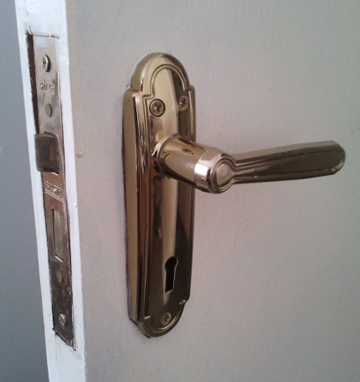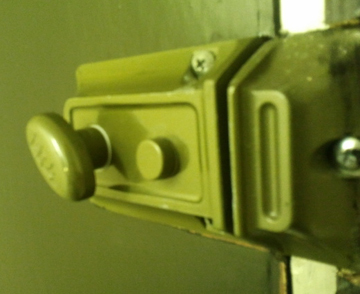 Continuing on from our earlier blog, ‘Door locks explained most common types, features etc’, we continue our search into
Continuing on from our earlier blog, ‘Door locks explained most common types, features etc’, we continue our search into
simple ways of securing your home at a minimal cost. While planning the raid, a thief must be certain that he can enter/exit
the house quickly, without too many restrictions. If a house contains a decent standard of security, it would mean a less
likely chance of a raider even attempting to gain access, as they will be put off by their only means of entry being broken glass.
Today, we provide ten unique ways to help your home achieve optimum security:
1) If you are away from home for a certain length of time, holidays, business trip etc, cancel all milk and newspaper deliveries.
2) Where possible, ensure that ladders are stored away. If they must be kept outside, fasten them to a wall with special brackets and securing it with a padlock.
3) Make sure that your shed door is padlocked with a high quality padlock. If not, a burglar can use the tools stored there for the break-in. For example, even a spade can be of great aid to the thief if he needs a strong lever to open a window.
4) Leave lights and a radio/TV on when you go out. If you are going to be away for a length of time, connect some lights to automatic timers to turn them on at night and off during the day. Also, consider asking a neighbour to park their car in your driveway.
5) Locks should be fitted to any windows near flat roofs, trees and drainpipes as they are easily accessed by thieves.
6) Valuable possessions should be marked with an ultra-violet marker to help police, in the case of their theft, assist their swift return. Metal objects can be marked with hammer-and-letter punches.
7) Never have your address and name marked on your keys, in case you lose them. Someone who says that they have found your keys might be just looking for a way
of getting you out of the house, while they use the keys for easy entry.
8 ) Never, ever, leave any window open when you leave your house, even an upstairs one.
9) Don’t leave keys inside a letterbox, in a lock or, most commonly, under a mat.
10) High hedges and shrubs should be avoided as they can hide a thief from the road or from neighbours.
By following these steps, a safer environment can be created at home and burglars are less likely to break into your home. These safety methods are also cheap and very effective in that they’ll force thieves away while at the same time not being an eye sore to other locals!
In addition to the free ways of avoiding a burglary listed above you should also educate yourself on the benefits of using the higher standard alarm systems, Security Camera Systems and locks for your home. Read as much information as you can about these systems and if you are interested in installing any of them get advice and quotes from a number of experts before going ahead with it. The usual rules apply with selecting the right person for the job, make sure to get references, license or insurance details and any other information that you need to make sure that you are totally happy with the tradesman that you choose. Also, remember to check whether the prices are inclusive or exclusive of VAT. In the UK many security related trades are required to carry an SIA license and in Ireland they are required to carry a PSA license so make sure to ask for the Security license number where relevant.
I hope this helps some of you who are looking at improving the standard of security for your home or business and if you feel this information is worthwhile please feel free to ‘Like’, Tweet or Google + this article or to share it with your friends.
Cheers
Conor Hogan
Tradesmen.ie
29 November 2012
Do you have any security tips or questions or comments to make on this article? If so we’d love to hear from you, please feel free to share them with us using the feedback form below?
Here are more security related articles below:-
http://blog.tradesmen.ie/2012/11/door-locks-explained-most-common-types-features-etc
http://blog.tradesmen.ie/2012/12/burglar-alarm-tips-what-to-look-for
http://blog.tradesmen.ie/2013/02/security-camera-tips-for-the-home

















